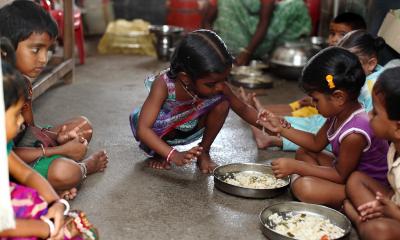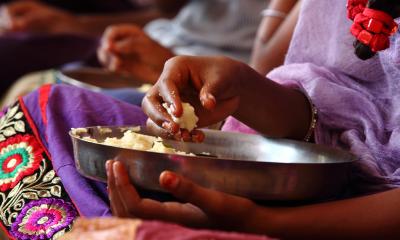
Young Lives was originally set up in 2001 to examine the causes and consequences of childhood poverty to inform global action in achieving the Millennium Development Goals. As the children in our study have grown up, we have seen overall poverty levels reduce and significant improvement in living standards across all four of our study countries.
Young people today are, on average, much better off than their parents, with high aspirations for social mobility. Young Lives households are generally less poor, with better access to electricity, water and sanitation. Improvements in health and well-being, and better nutrition, have led to significant reductions in childhood growth stunting and improved access to antenatal care. Significant increases in access to education mean that young people typically spend longer at school, with less time spent in unpaid domestic and care work, and lower rates of early marriage and parenthood.
However, this progress has been very uneven, with persistent and widening inequalities threatening to leave many young people behind. Our evidence shows that those from the poorest households, rural areas, and minority status groups are increasingly disadvantaged. Gender differences in young people’s transition to adulthood open out significantly during adolescence, affecting young women and young men in different ways at different times, particularly in relation to education, early marriage and parenthood, migration and getting a decent job.
The economic and social impacts of the COVID-19 pandemic widened inequalities across all four of our study countries, threatening to reverse hard won development gains and life chances. The combined pressures of interrupted education and increased domestic work and childcare, had a disproportionate impact on vulnerable girls and young women.
Intersecting inequalities also reduce the resilience of vulnerable young people to adapt and respond to other external crisis, including the increasing effects of climate change and conflict.
Young Lives has therefore put understanding and addressing gender, poverty and intersecting inequalities at the heart of our research and policy work going forward, which we believe is central to achieving the Sustainable Development Goals.
Young Lives was originally set up in 2001 to examine the causes and consequences of childhood poverty to inform global action in achieving the Millennium Development Goals. As the children in our study have grown up, we have seen overall poverty levels reduce and significant improvement in living standards across all four of our study countries.
Young people today are, on average, much better off than their parents, with high aspirations for social mobility. Young Lives households are generally less poor, with better access to electricity, water and sanitation. Improvements in health and well-being, and better nutrition, have led to significant reductions in childhood growth stunting and improved access to antenatal care. Significant increases in access to education mean that young people typically spend longer at school, with less time spent in unpaid domestic and care work, and lower rates of early marriage and parenthood.
However, this progress has been very uneven, with persistent and widening inequalities threatening to leave many young people behind. Our evidence shows that those from the poorest households, rural areas, and minority status groups are increasingly disadvantaged. Gender differences in young people’s transition to adulthood open out significantly during adolescence, affecting young women and young men in different ways at different times, particularly in relation to education, early marriage and parenthood, migration and getting a decent job.
The economic and social impacts of the COVID-19 pandemic widened inequalities across all four of our study countries, threatening to reverse hard won development gains and life chances. The combined pressures of interrupted education and increased domestic work and childcare, had a disproportionate impact on vulnerable girls and young women.
Intersecting inequalities also reduce the resilience of vulnerable young people to adapt and respond to other external crisis, including the increasing effects of climate change and conflict.
Young Lives has therefore put understanding and addressing gender, poverty and intersecting inequalities at the heart of our research and policy work going forward, which we believe is central to achieving the Sustainable Development Goals.



